
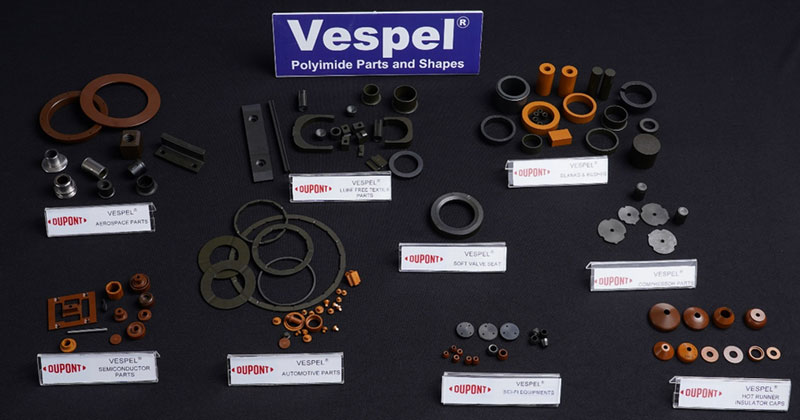
DuPont™ Vespel® is a unique family of high-performance polyimide materials engineered for demanding applications that require a combination of extreme heat resistance, low friction, excellent wear performance, and high strength. Unlike many plastics, Vespel® parts can operate in temperatures ranging from cryogenic levels up to 300°C (572°F) continuously, and even higher for short durations.
It is widely used in aerospace, automotive, semiconductor, and industrial machinery where traditional materials fail—such as in bushings, bearings, seals, thrust washers, and insulators. Vespel® offers metal-like strength with the lightweight, self-lubricating advantages of a polymer, often eliminating the need for external lubrication or frequent replacement.
Its ability to maintain stability under mechanical stress, resist chemicals, and perform in vacuum or dry environments makes it a trusted solution in mission-critical applications.






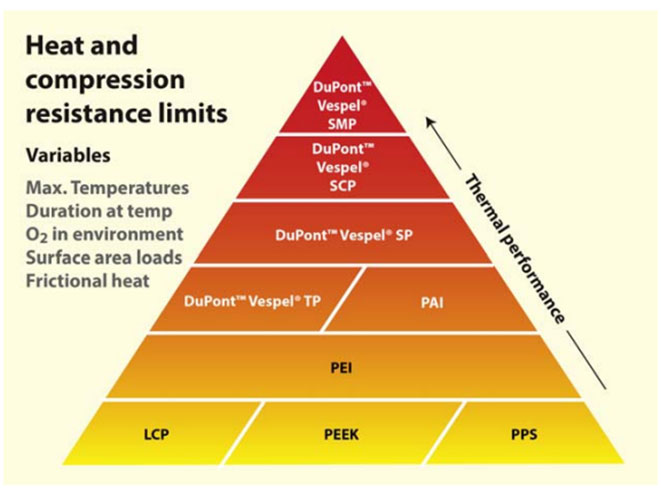
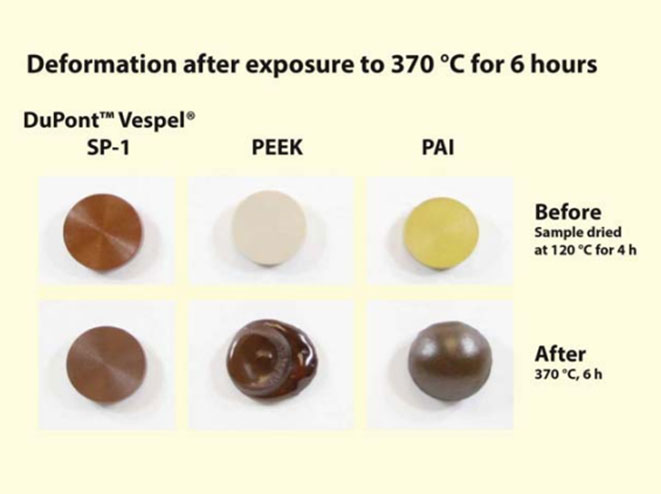
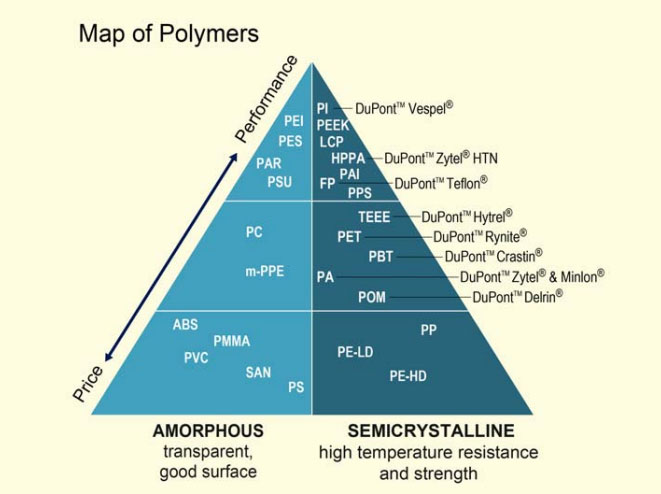
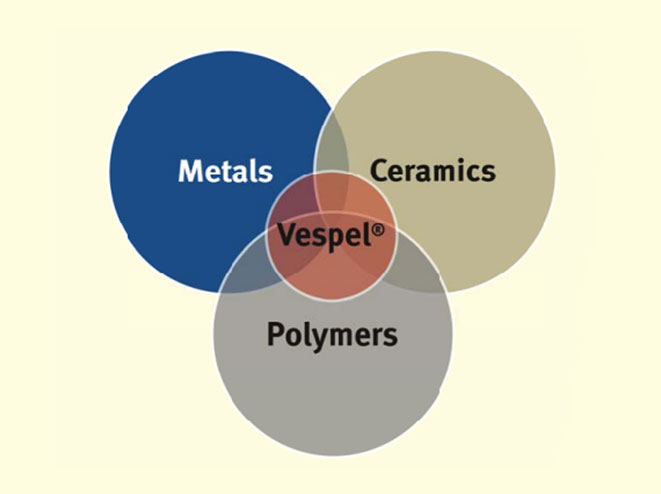
Vespel® can tolerate short-term excursions up to 482°C (900°F), depending on the grade and specific application, without melting or catastrophic failure. This is especially important for applications like aerospace or engine components where heat spikes may occur.
As a thermoset polyimide, Vespel® does not melt like thermoplastics. Instead, it retains its dimensional stability and integrity even under extreme thermal conditions.
Vespel® exhibits a low coefficient of thermal expansion (CTE) compared to many other polymers, contributing to its excellent dimensional stability over wide temperature ranges.
When used in high-vacuum or space environments, Vespel® demonstrates very low outgassing, making it a preferred material for aerospace and semiconductor manufacturing.
Vespel® can tolerate short-term excursions up to 482°C (900°F), depending on the grade and specific application, without melting or catastrophic failure. This is especially important for applications like aerospace or engine components where heat spikes may occur.
As a thermoset polyimide, Vespel® does not melt like thermoplastics. Instead, it retains its dimensional stability and integrity even under extreme thermal conditions.
Vespel® exhibits a low coefficient of thermal expansion (CTE) compared to many other polymers, contributing to its excellent dimensional stability over wide temperature ranges.
When used in high-vacuum or space environments, Vespel® demonstrates very low outgassing, making it a preferred material for aerospace and semiconductor manufacturing.
| Grade | Composition | Key Features | Typical Applications |
| SP-1 | Virgin polyimide (unfilled) | Maximum thermal resistance, excellent electrical insulation. | Electrical insulators, semiconductor components. |
| SP-21 | 15% Graphite | Enhanced wear and friction properties. | Bearings, seals, and bushings. |
| SP-22 | 40% Graphite | High wear resistance, lower friction in dynamic applications. | High-load industrial components. |
| SP-211 | 15% Graphite, 10% PTFE | Excellent self-lubricating properties. | Low-friction applications, engine parts. |
| SP-3 | MoS2 Filled | High strength, exceptional thermal resistance. | Aerospace and structural applications. |
| SP-2515 | Proprietary blend | Extreme wear resistance and chemical compatibility. | High-performance automotive and industrial equipment parts. |
| SP-202 | 15% Graphite, 10% MoS₂ | Superior lubricating properties, reduced wear under pressure. | High-load, low-speed industrial applications. |